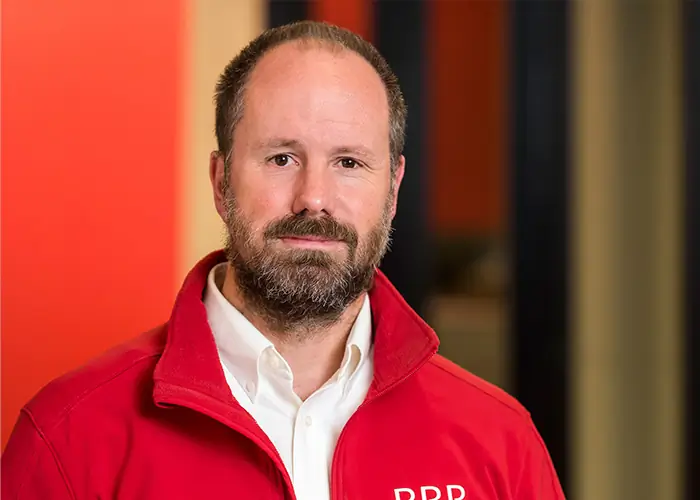
There are undoubtedly a lot of companies in Kanata’s tech park that can claim humble beginnings – but only a special few will celebrate 50 years of business.
Born in the basement of Richard Brancker’s Glebe home, RBR is one of those companies.
Known for its innovation in designing and building instruments that help scientists and researchers around the world measure different parameters in ocean water, the local company is celebrating its half-century of growth in 2023.
With that, says RBR president Greg Johnson, is an opportunity to look back at the company’s beginnings, its consistent expansion, commitment to ESG, and the future prospects for the team.
The beginning of RBR
RBR began as a contract business working on projects for the federal government. As the company expanded, it took over Brancker’s home – and the house next door – before moving further away to accommodate a growing workforce. The projects at that time were fascinatingly varied, says Johnson.
“There were about 15 people or so doing lots of weird and wonderful projects. They made spectacles for the blind. They did some things for egg production lines to measure how fresh the eggs were. They did devices for mining equipment to help you locate where your ventilation shaft was relative to the horizontal shaft,” he says.
The growth story of RBR changed when Frank Johnson (Greg’s father), another English expatriate and a biomedical engineer by training, joined the company. Frank later bought RBR from Brancker when he wanted to retire. The company shrunk significantly but managed to rehire most of the laid-off employees within six months, under his guidance.
The next chapter
Johnson’s reign at RBR was marked by a significant pivot, says his son. Rather than continue working on random small projects for the federal government, RBR pivoted to specialty projects.
A simple temperature recorder Johnson had designed in the mid-eighties became the first of its world-leading oceanographic instrumentation line.
Since then, RBR has grown by 20-30 per cent every year for the last six years, with a workforce now exceeding 100 people.
A company that initially thrived on change has had to adapt to structure while preserving the need for individuality and character.
“You’ve got to be comfortable with change… being dissatisfied with the status quo is probably a necessary tenet for everybody who’s here,” says Johnson. “I’m an advocate of keeping structure and administration and things to the bare minimum. It just kind of suppresses people’s character and individuality. It’s a bit boring.”
Looking back on the company’s journey, Johnson says that crossing the 50-people mark felt like a turning point.
With increased numbers comes the need for clearer communication and a shift from ‘kayak-like agility’ to ‘canoe-like agility’.
The company’s commitment is to maintain the agility that has served it so Johnson says.
“God forbid we ever end up as a cruise liner where we have to take two and a half miles to decide to turn a corner.”
Staying true to course
Despite its success, RBR remains rooted in its humble beginnings. The company operates in a micro-niche industry with only a handful of competitors worldwide. However, this unique positioning has allowed it to infuse consumer product ideas into their scientific instruments, rendering them robust and user-friendly.
On RBR’s commitment to ESG, Johnson says that doing the right thing should not be driven by external motivations, such as marketing or recruitment advantage.
Instead, actions should be authentic, stemming from a sincere belief in their value. RBR’s commitment to ESG practices is, therefore, genuine and not just a box-ticking exercise for good PR.
Johnson gives an example of the ‘bike to work’ initiative. As part of it, employees track their distance traveled to work, and RBR hosts a leader board, essentially gamifying the journey and paying employees for the distance traveled.
The idea came about as a response to rising gas prices, a way to make commuting cheaper and more fun for their employees. It was also a response to the challenges of COVID-19, aiming to strike a balance between remote work and in-office interactions.
RBR’s journey over the last 50 years has been marked by resilience, consistent growth, and a commitment to doing the right thing.
As it looks towards the future, it continues to position itself at the forefront of the tech industry while staying true to its roots.
The company’s aim is to expand even further, with Johnson jokingly saying, “eventually we’ll take over all of Kanata.”
